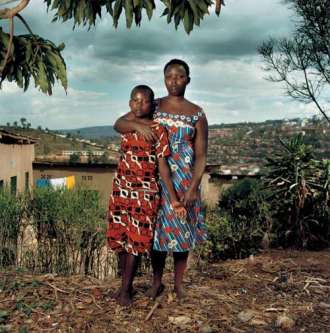
Photo by Jonathan Torgovnik
With the help of $44 million from the US government, Rwanda decided last week to extend its multi-layered judicial system for another year. The system is comprised of an international criminal tribunal for the most heinous criminals associated with the 1994 genocide, and the semi-traditional gacaca courts, which practice restorative justice on the community level. The extension has been praised because it gives the government a chance to determine the innocence or guilt of many of the alleged criminals that remain untried. But Hutus claim that the Rwandan government is partial to the country’s Tutsi minority—largely the victims of the 1994 genocide—and that the process is fueled by revenge, not justice. Is the Tutsi-dominated Rwandan Patriotic Front (RPF) government manipulating the courts for its own political and ethnic gain with US dollars?
(Check out Mother Jones’ fantastic photo essay on Rwanda: “Can You Love a Child of Rape?”)
Gacaca, literally “on the grass,” is a restorative system which allows perpetrators responsible for crimes including isolated murder and destruction of property during the genocide to decrease their prison sentences if they plead guilty, apologize, and agree to supplement their shortened jail time with community service. But the gacaca courts have been instructed by the RPF to focus only on crimes that occurred during a limited timeframe, most of which were committed by Hutus. During the protracted civil war that preceded the genocide, though, The Tutsi Rwandan Patriotic Army was also responsible for murder, rape, and destruction of Hutu property. Also, gacaca judges are untrained and elected by the community, which raises concerns about international standards of due process and impartiality.
While it’s important that the major perpetrators of the genocide be held accountable for their crimes, without fair trials that cut across ethnic groups, these supposedly restorative courts could perpetuate, not end, Rwanda’s horrific cycle of violence that has plagued Hutu and Tutsi controlled governments for the past half-century.








